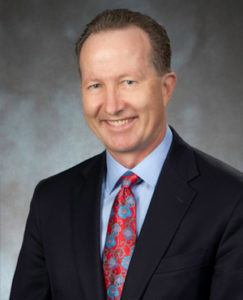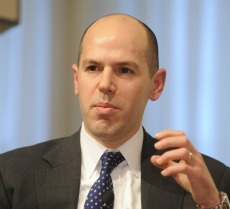Financial experts are expressing cautious optimism for the P/C industry as it heads into 2017, though they say that multiple factors will continue to pose a challenge.
Perhaps one of the biggest issues from 2016 likely to be a focus in this new year is a flood of excess capital, said Jay Gelb, managing director at Barclays, He and other experts spoke as part of a panel discussion at the Insurance Information Institute’s (III) 21st Annual Property and Casualty Insurance Joint Industry Forum, held Jan. 17 at the Waldorf-Astoria in New York.
Based on Barclays research, Gelb said the property/casualty insurance industry in the U.S. alone currently holds $165 billion in excess capital, which translates to about 25 percent over-capitalization.
“That is essentially the equivalent of four Hurricane Katrinas happening at once,” he explained. “Obviously, we never want that to happen, and it’s highly unlikely, but I think it will be a tough road from a profitability standpoint for the next couple of years.”
Going forward, Gelb stated he expects it will be difficult to avoid at least moderate underwriting losses. As catastrophe losses saw a relatively meaningful increase in 2016 compared to prior years, underwriting losses were negatively impacted, he said.
Trump Era Creates Uncertainty
Uncertainty surrounding the new Trump administration could also bring challenges related to profitability, added panelist William E. Rotatori, chairman and CEO of New England Asset Management.
“There’s a level of uncertainty that doesn’t necessarily correlate well to higher levels of activity,” he said during the panel discussion. “There are some trends already in place that are going to be tough to change, such as the levels of debt in the overall economy, the aging population and the labor force participation rates that are still in secular declines. These are things the new administration is walking into, and I’m not sure it’s going to change that trajectory.”
He added that one key strategy for property/casualty insurers in 2017’s potentially challenging environment will be the right preparation to take advantage of volatility.
“It’s important to recognize the environment we’re stepping into in 2017 and mind your risk management,” he said. “Now is not the time to be 10 toes off the edge of the surfboard in terms of your risk position.”
This is because the Federal Reserve is likely to continue its interest rate normalization process with several anticipated rate hikes this year, he stated, in addition to 2017 marking the end of a 35-year bull market for bonds. Some volatility can also be expected as changes are anticipated in taxes, healthcare and trade policies, he said.
“It’s going to be a year more so than other years where it won’t be smooth, straightforward or easy,” he said. “Tactical positioning throughout the year will be a greater source of value added than it has been in prior years.”
That said, panelists did see opportunities in 2017 for the property/casualty insurance industry, such as a shift in the way mergers and acquisitions are carried out.

Source: Dowling & Partners
“One of the interesting things about the deals that have happened over the last few years is that there really haven’t been a lot of acquisitions of U.S. companies by U.S. companies of any significance,” said Gary Ransom, partner at Dowling & Partners. “Those outside the U.S. have an advantage coming in to purchase a U.S. company because of the inefficient tax structure of the U.S. today. With the new administration’s potential change in taxes, all of a sudden the U.S. can be back in the game. If there are a lot more companies competing for any given acquisition, then U.S. companies will have a better economic view to allow them to do deals…It sort of levels the playing field.”
Panelists pointed to lower tax rates, in addition to regulatory reform and fiscal stimulus, as expected changes under the new administration that have the potential to raise the level of economic activity and positively impact the market.
Autonomous Vehicles Are a Positive
The auto industry and its advance of autonomous vehicles could also positively impact insurers, panelists added. Despite efforts to test and introduce driverless cars for consumers, one of the biggest impacts of autonomous vehicles could actually be on the commercial side, Gelb said.

“Some insurance carriers have exited the commercial trucking market because underwriting results have been terribly challenged,” he stated. “If we could use technology to address some risk factors in a constructive format, maybe first on the commercial side, that would be extremely helpful.”
He added that an element of automated control in commercial trucking could contribute to less driver fatigue, and automated braking elements for trains could help reduce train crashes similar to those recently seen in the New York metro area.
“It seems confusing how we don’t have some of these things already,” he said. “From a commercial aviation perspective, pilots take care of takeoffs and landings, and everything else is automated. It feels like modes of transportation on the ground need to catch up to that.”
Looking ahead, Ransom explained one major trend that is likely to be seen this year is a separation of companies that are employing the right strategies to manage risk and profitability, and those that are falling behind.
“In the context of the overall industry, there are companies that always seem to do better than average – they’re the companies that have paid attention and worked to get that income,” he said. “The ones that have succeeded in the past tend to be the ones that keep doing well. It almost always has to do with either knowing more about loss costs and how to price risk, or having a very low-cost basis. Knowing how to price and how to select underwriting risk is essential, and successful companies tend to have the track record to make that judgement.”





















 Berkshire-owned Utility Urges Oregon Appeals Court to Limit Wildfire Damages
Berkshire-owned Utility Urges Oregon Appeals Court to Limit Wildfire Damages  Retired NASCAR Driver Greg Biffle Wasn’t Piloting Plane Before Deadly Crash
Retired NASCAR Driver Greg Biffle Wasn’t Piloting Plane Before Deadly Crash  Insurance Groundhogs Warming Up to Market Changes
Insurance Groundhogs Warming Up to Market Changes  What Analysts Are Saying About the 2026 P/C Insurance Market
What Analysts Are Saying About the 2026 P/C Insurance Market 










